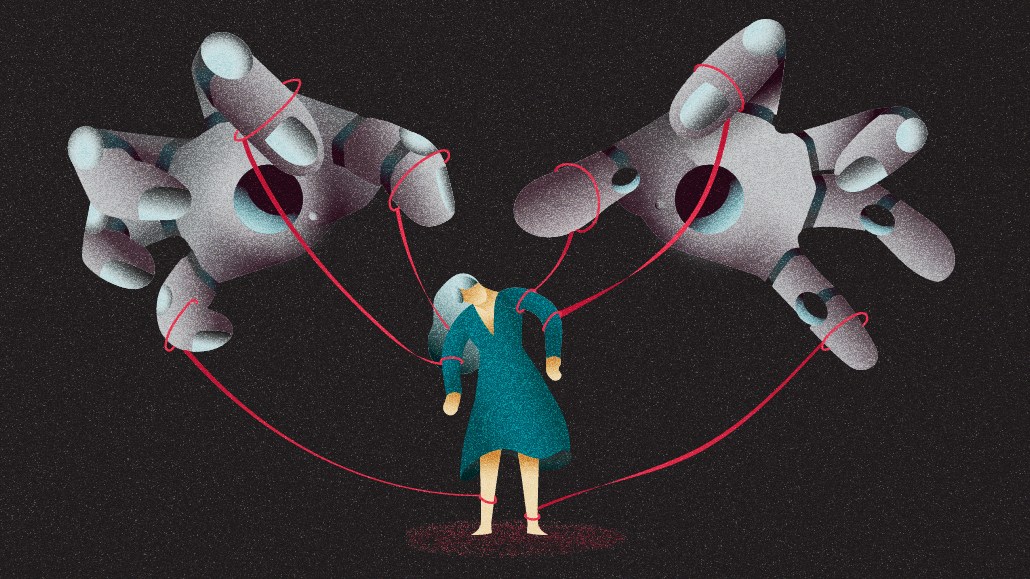Secure your place at the Digiday Publishing Summit in Vail, March 23-25
Why YouTube and TikTok creators aren’t going all-in on AI-generated videos

Making videos can be a lot of work, making the idea of outsourcing that labor pretty tempting. And the arrival of generative AI tools capable of creating everything from scripts to thumbnails can be especially enticing.
But there are also reasons for creators not to hand over their YouTube channels and TikTok accounts to the likes of ChatGPT and RunwayML. For starters, some audience members strongly oppose creators’ extensively using of generative AI tools. And more to the point, creators recognize a need to maintain some human connection with their audiences.
That’s not to say that creators aren’t incorporating generative AI tools into their video workflows. They’re just taking care to avoid AI overtaking their videos and even adopting policies governing their AI use, as covered in the video below.
“If there are words that ChatGPT wrote in a script, that is a failure of the policy,” said Hank Green, a creator who runs the YouTube channel Vlogbrothers with his brother John and co-founded the annual creator confab VidCon.
More in Future of TV

Future of TV Briefing: Netflix’s in-house ad platform launch has led some advertisers to double spend
This week’s Future of TV Briefing looks at how the streamer’s expanded ad targeting and measurement options has resulted in increased advertiser spending.

What’s behind Netflix’s CTV market share jump?
The streamer is set to grab almost 10% of global CTV ad spend. Media buyers say live sports, lower prices and DSP partnerships are making a difference.

Future of TV Briefing: WTF is server-guided ad insertion?
This week’s Future of TV Briefing looks at server-guided ad insertion, a newish method for inserting ads into streaming video on the fly.







